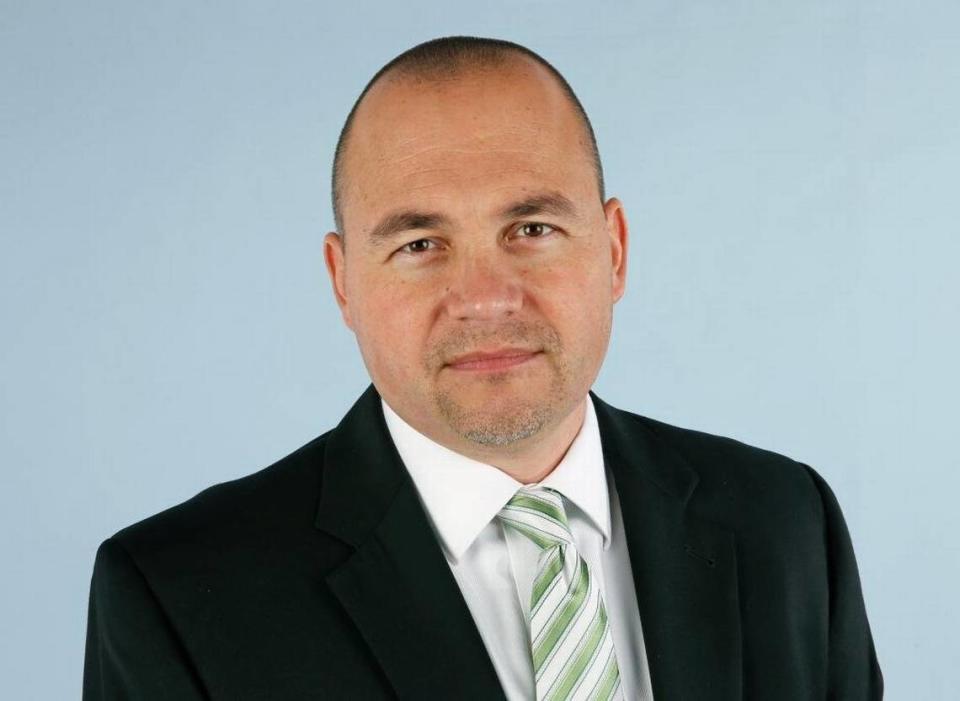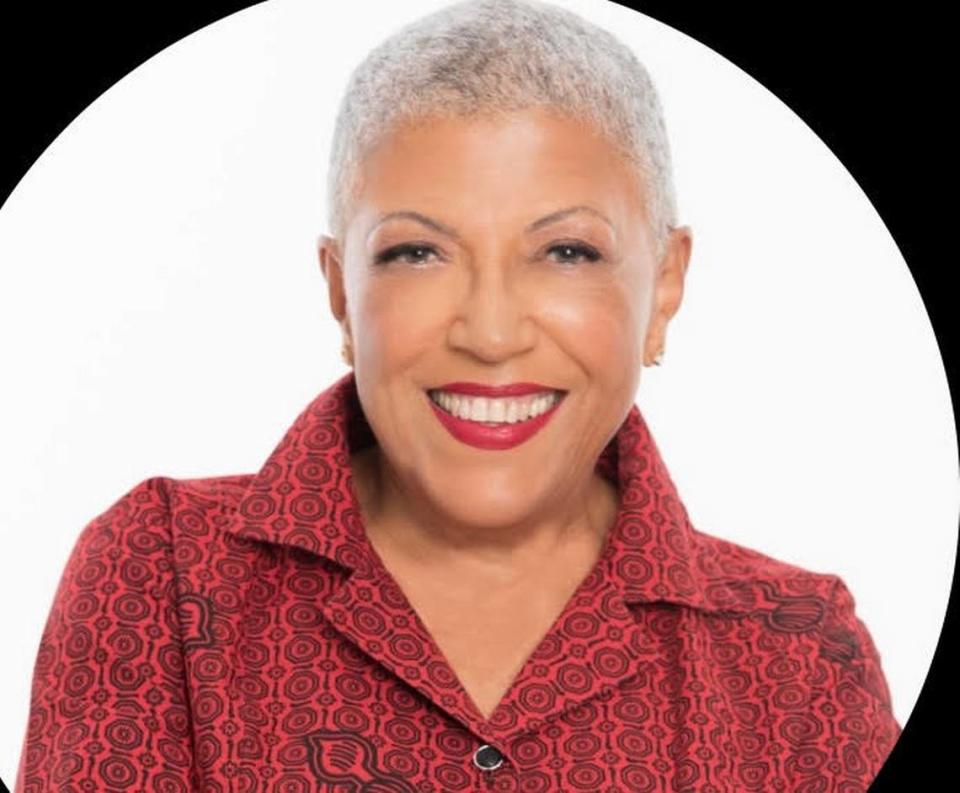Are condo buyouts rising in Miami? What owners should know as developers make moves
Developers are hungry for prime real estate, and are approaching condo owners of aging buildings — many on the waterfront — to persuade them to sell. It’s a tough decision for owners, and maybe even the start of a standoff.
The Miami Herald spoke with three real estate pros to share advice for owners contemplating condo buyouts or terminations, when at least 80% of residents in a building agree to sell to a developer.
The experts:
▪ Peter Zalewski, founder of the real estate consultancy firm Condo Vultures.

▪ Dennis Eisinger, managing partner at Eisinger Law in Hollywood.

▪ Robbie Bell, a real estate agent with Berkshire Hathaway HomeServices EWM.

Bell experienced the contentious battle over her own former home in Edgewater at Bay Park Towers. She sold her condo to one of the developers fighting over the waterfront building.
The condo buyout trend is expected to continue for the next few years, according to Zalewski. New condo regulations will kick in come 2025, a result of the condo collapse in Surfside. It will add financial pressure, forcing owners to build up reserves and address repairs.
Although terminations can be messy, divide owners and lead to legal battles with developers, lawyer Eisinger said these agreements can be a win-win situation for both owners and developers.
“Generally, this leads to happy sides,” Eisinger said, adding owners usually get a premium for their residence while developers obtain desirable land.
“Even if we have reserves, studies and engineering reports, it is a good thing for developers to be re-purposing and rebuilding on a particular site for safety purposes. We wouldn’t have thought about that 10 years ago, but now we have to think about it because of Champlain.”
Condo terminations normally follow one of three paths, but all require developers gaining 80% of residences to control a building’s fate:
▪ The first path often follows a developer making an offer to a condo association board for a bulk amount of the residences and the land. The association then shares the offer with its owners and a vote is held. The developer would need 80% of the vote and 5% or less of residents rejecting termination plans to gain control.
▪ The second option sees developers buying residences individually and influencing condo policies in order to gain even more condos. They may, for example, push for large assessments in order to squeeze out residents.
▪ The final path is where developers will buy up residences individually, but have the board of directors on its side and connect them to owners willing to sell.
On any given path, owners who adopt what’s known as “Kaufman” language in their condo association documents have greater protections against developers and takeovers. Established in 1977 after the state’s district court of appeal case Kaufman v. Shere, the statutory language or safe harbor provision protects owners by allowing future legislative amendments to be applied to condo documents. That’s a big deal for owners who live in older buildings constructed at a time when condo documents favored developers and more easily allowed takeovers.
For those weighing buyouts, here is what Bell, Eisinger, and Zalewski have to say:
What should condo owners consider in this situation?
▪ Robbie Bell: The decision has to be totally made on your specific needs and not anyone else’s. It is a personal preference. It is all about what it means to you, your family and your life. The questions I ask myself and my clients are: ‘How do you want to live your life? How do I want to live my life if I’m not in this community? What needs to happen to make me happy?’ It is tough soul-searching.
▪ Dennis Eisinger: At a minimum, the offer for a condo has to be the market value of the unit by law, but it is usually 1.5 to 2.5 times market value. When someone is thinking about this, they should think they’re going to get a premium. However, they have to think whether they can buy another place, because they’re going to get a new mortgage with higher interest rate. Just because you get more money doesn’t mean you’re going to be financially better off.
What should owners consider when agreeing to sell — is it best to be first and sell with others, or hold out?
▪ Peter Zalewski: If the association brings everyone together, the developer will pay a premium because they don’t have to do that heavy lifting. It could be better to sell, because no one wants to be the last rat on a sinking ship. We all know Miami’s real estate market. It works in a herd mentality. You’re at that inflection point of it could go one way or another. As costs come into focus, all of this stuff will become a bigger and bigger issue. Ten to 15 years from now we’ll be in a better place. Champlain was the black swan event that changed everything for the real estate market in South Florida like Hurricane Andrew did 31 years ago.
▪ Bell: If it’s a bulk sale, I don’t think that’s a good position to hold out. If the majority of the people have flown the coop, and you’re sitting there, it puts you at a disadvantage.
What should owners ask during negotiations with developers?
▪ Eisinger: The developer has the right to buy out and terminate. The owners have the right to put up obstacles and negotiate. A good idea is hiring a good expert in the area and getting advice on the value of units, the process and what they think the developer’s highest price could possibly be. Some use Realtors. Some get attorneys involved at a higher stage.From the association’s standpoint they should put on all costs and attorneys fees incurred in this process on the developer. Developers are willing to do that. They’re willing to put blank dollars to move the process forward and even if it doesn’t, developers take on those costs. From an association standpoint, if one developer is willing to give $100 million, maybe another would be willing to give $120 million. Maybe there are other people willing to give more. Getting experts involved is good for that. Finally, during the sale agreement, you can negotiate extra time to leave, from six months to up to one year.
▪ Bell: What are you selling? Do you want appliances? Some people don’t want anything.
How likely is it that condo terminations will continue in South Florida?
▪ Zalewski: The driving force behind the condo buyouts is a combination of insurance spikes, reserve requirements and mandated repairs that all resulted from the collapse of the Champlain Towers South. Condo terminations are going to be on the rise for the next five to 10 years. The simple reason is it is an effective way for the developer to purchase or acquire a property in a desirable location. Developers are driving this because they want land. I have been approached by three associations this summer that want out. With insurance, prices, worries about a recession, three associations reached out who want to cash in. It’s market conditions and prudent owners who realize what’s coming. They can try to fight it or they can get ahead of the curve. What could happen if this becomes a wave is a lot of associations looking to sell. The more associations looking to sell the less money they’ll get.

